I have a dataframe that looks like this:
index value
0 1
1 1
2 2
3 3
4 2
5 1
6 1
what I want is for each value to return the index of the previous smaller value, and, in addition, the index of the previous "1" value. If the value is 1 I don't need them (both values can be -1 or something).
So what I'm after is:
index value previous_smaller_index previous_1_index
0 1 -1 -1
1 1 -1 -1
2 2 1 1
3 3 2 1
4 2 1 1
5 1 -1 -1
6 1 -1 -1
I tried using rolling, cumulative functions etc. but I couldn't figure it out. Any help would be appreciated!
Edit: SpghttCd already provided a nice solution for the "previous 1" problem. I'm looking for a nice pandas one liner for the "previous small" problem. (even though, of course, more nice and efficient solutions are welcomed for both problems)

